Lost Colony
The year is 2127, humans have made their first steps into galactic travel and have gone to visit a new planet capable of supporting life - Elir.
A large group of scientists had been sent to the planet to examine the atmosphere and its conditions. Strange sitings had been reported throughout their mission. At first mysterious sitings of unexplainable animals, then bones, larger than anything that had been anticipated. Lastly there was a report of an underground installation with an active power source. This was the last transmission received from the team.
A recon and rescue mission has now been planned to save any scientists that our found and to see what has happened. Having assembled the only 4 marines in near-orbit, it is time.
Good luck.
github.com/jribbens/wasabi-root
Awards
Scores
Ratings (show detail)
Overall: 3.9
Fun: 3.4
Production: 4.5
Innovation: 3.7
Files
| File | Uploader | Date |
|---|---|---|
|
wasabi-root-master.zip
— final
Lost Colony - The Game |
ndevox | 2016/03/05 23:52 |
|
day6-1.png
Motion Detected |
mauve | 2016/03/05 00:01 |
|
day6-2.png
Proceed to complex |
mauve | 2016/03/05 00:00 |
|
rex.png
Walk cycles for Rex |
mauve | 2016/03/02 01:02 |
|
day2-1.png
in game tiles |
mauve | 2016/03/01 01:18 |
|
pathfinding.png
Pathfinding |
mauve | 2016/02/29 00:56 |
|
complex3.png
Map editing with Tiled |
mauve | 2016/02/29 00:56 |
Diary Entries
Day 1
We kicked off sharp at 9am with a video conference to agree which game idea we actually wanted to go with. We had some ideas for a web-based MMO for "the Aftermath" theme, but there was some consensus that this was perhaps not well enough defined to make immediate progress. Instead we decided to mash up a couple of the ideas for other themes, and hope that good things will flow!
So our game is going to be tile-based, and we thought it would be interesting to attempt hexagonal tiles. I spent most of the day drawing in Inkscape, with the result that we can already start to design levels in Tiled:
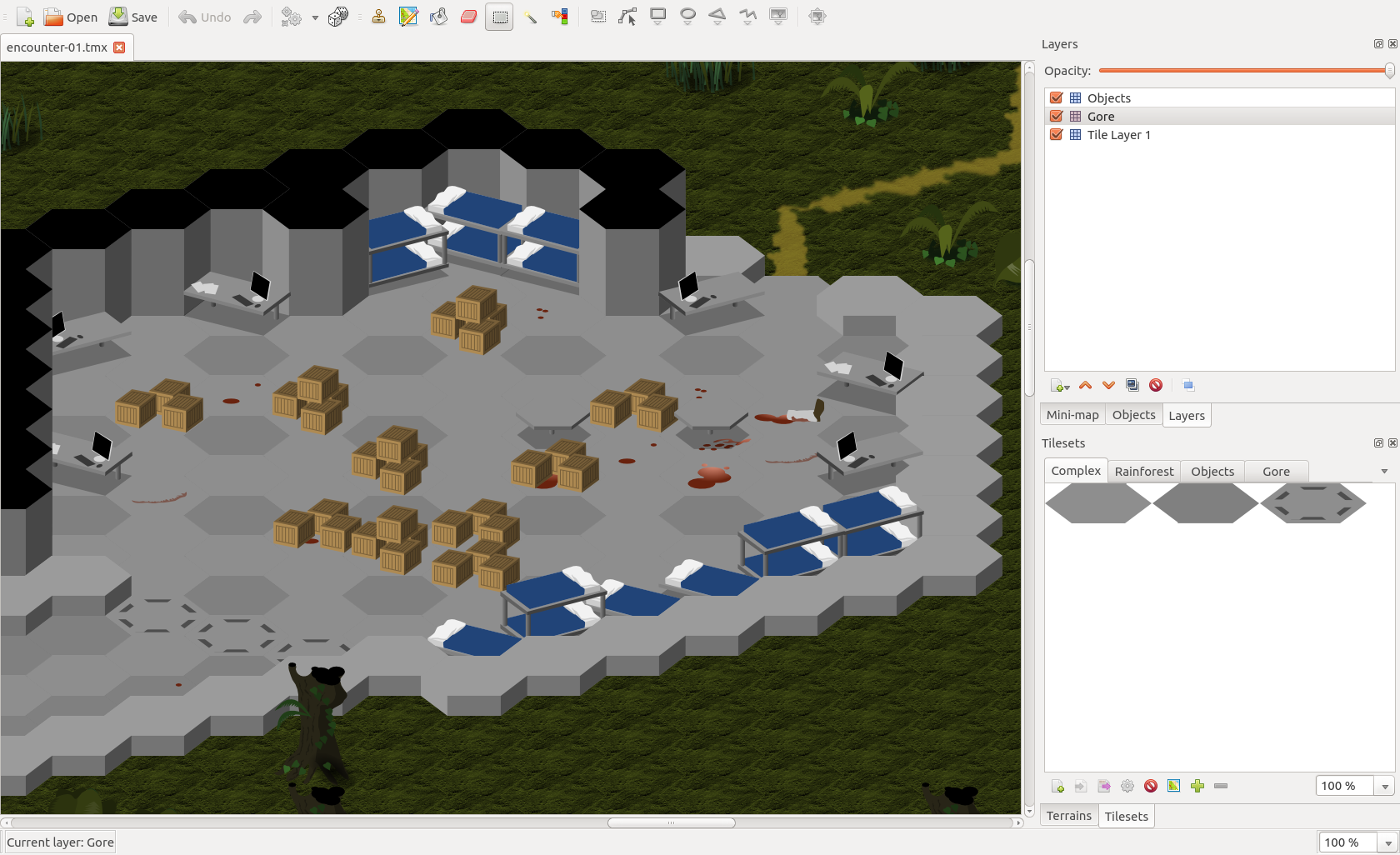
I then had a look at some of the hexagonal tile maths and pathfinding, and discovered this is all handily documented with code examples at Red Blob Games! So one quick test script later, with a little copy-paste and rewriting to use the same coordinate system as Tiled, it works!:
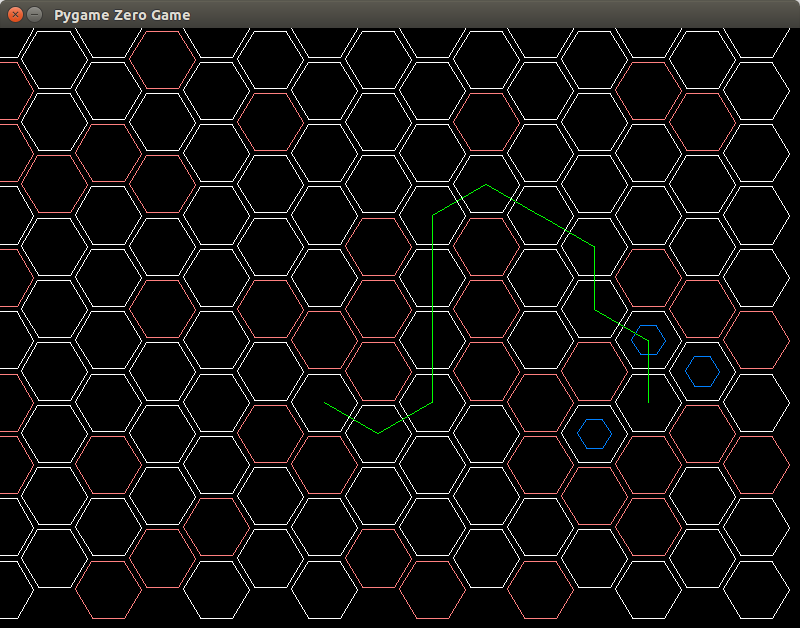
It's been a long day, and we don't have our own game engine rendering our sprites yet, but I feel we've done very well out of the online resources that were available, and we're well-positioned for what we need to do over the rest of the week.
Day 2
Today we pushed towards combining our POC stuff for hex grids and experiments with PyTMX, in order to draw and render the tile map in-game. We also got further with weapon design and some of the code for characters and enemies to follow point-and-click paths. So today's screenshot may look a lot like yesterday's, but this is now in-game!:
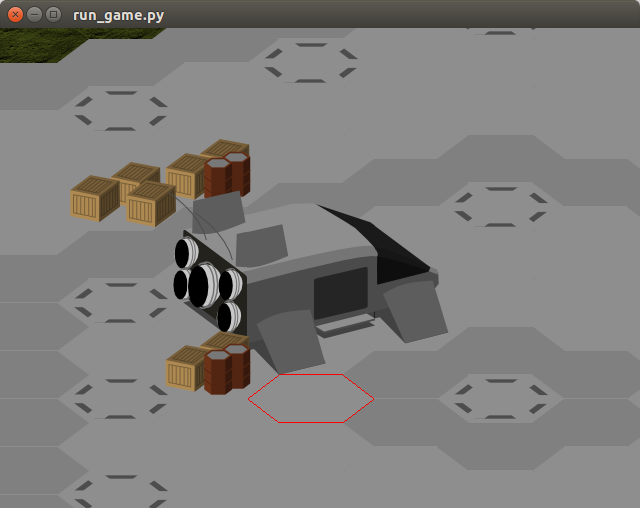
Day 3
This even was a long slog in drawing walk cycles for one of our main characters, Rex. Hexagonal isometric tiles were always going to multiply the amount of artwork required, but hopefully having drawn the walk cycles once it will just be a copy-and-paste job to re-use them for our other (human) characters; I can just drop on new torsos. I went for 4-frame walk cycles. Times six directions is 24 sprites:
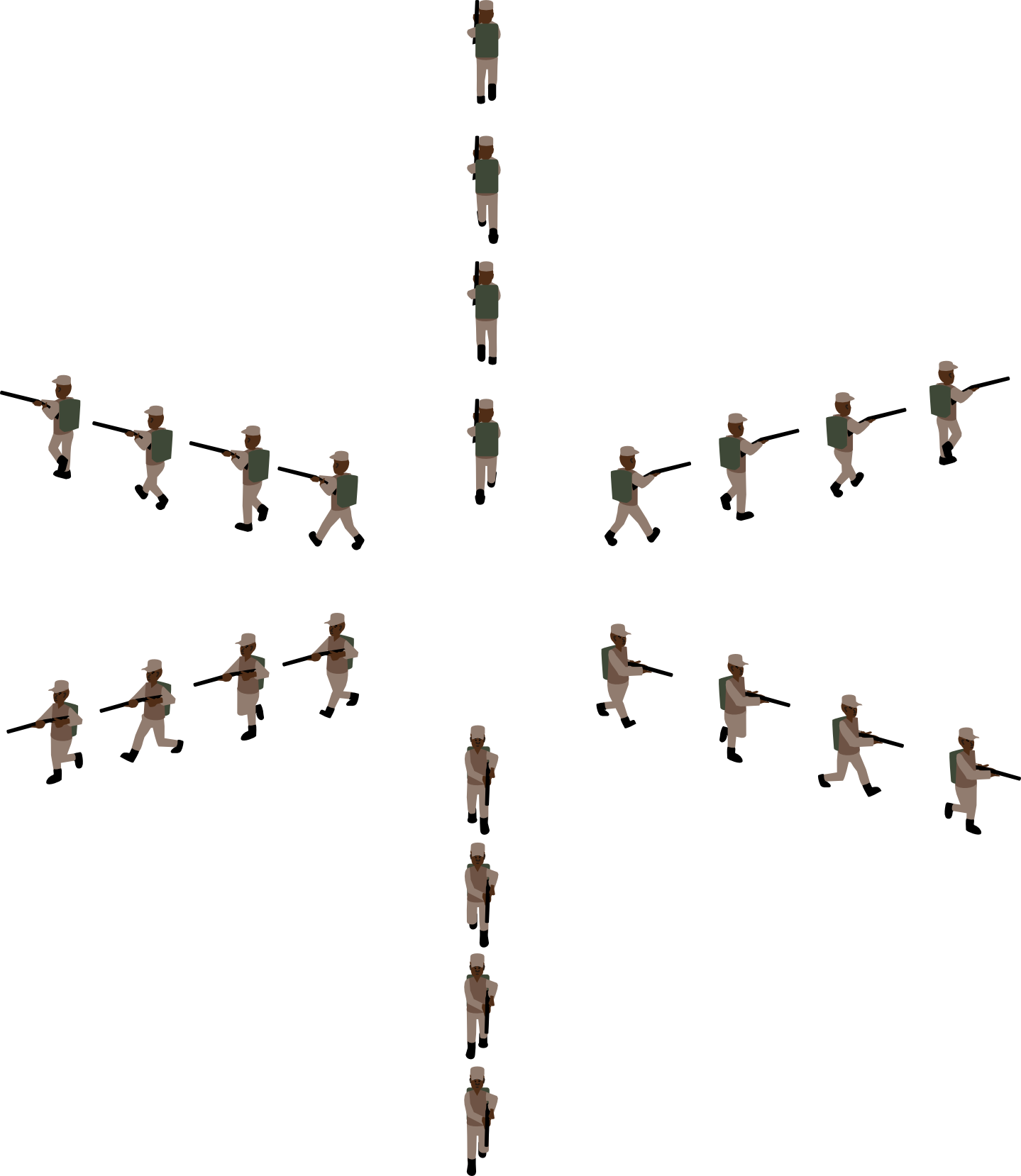
I haven't actually tested it as an animation sequence yet, so hopefully it won't look too iffy.
Day 6
Today was a productive day. I've been pushing pretty hard to the finish line today because I'm going to the Raspberry Pi Birthday Weekend tomorrow. This, and a lack of good visible progress, is the reason for my lack of diary entries.
Have a couple of screenshots, and happy hacking tomorrow!
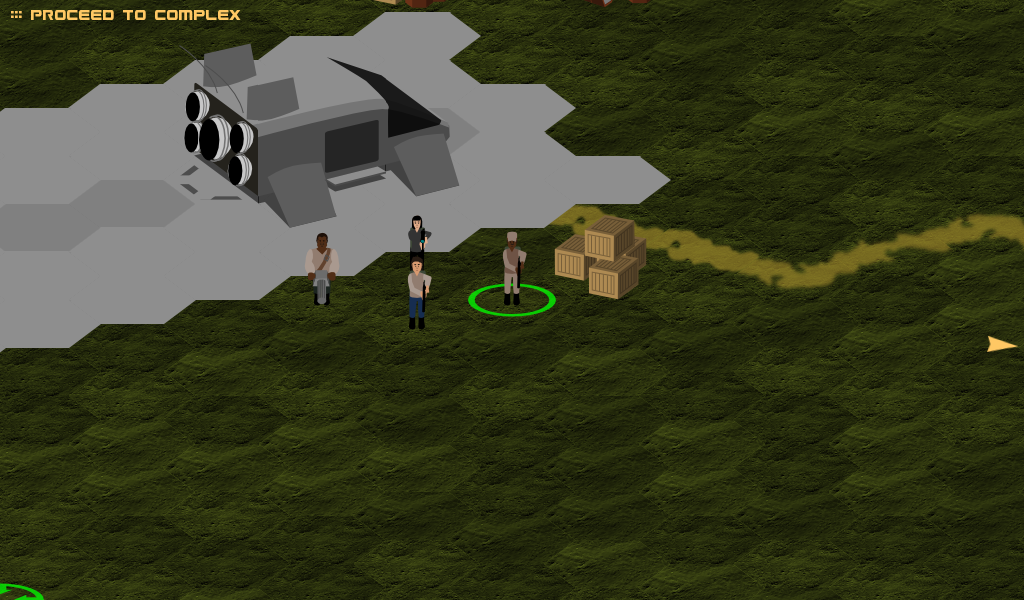

Reflection on PyWeek
I learned a lot working with this team.
I've worked for many years as a programmer including several using Python. Normally I'm the best python programmer around - but only because nobody else does much Python! My last job was as a programmer in a forensic accounting team where hardly anyone else could code. I've also little experience of writing games.
Team Wasabi had some very good programmers. Dan has a few PyWeek trophies and wrote pygame zero, others were brilliant but less famous. Sometimes my code was great - and sometimes I needed to re-think my approach to a problem. As I read others' code, I'd be thinking "yes, that's how I'd have done this ... but I didn't know you could do that". For the first time since I read Gamma's "design patterns" book in the mid 90s, I found myself working with people who used them quite naturally in conversation! Normally design patterns are only interview questions!
It was the first time I've used pyglet, trello and google hangouts. At least agile working methods were familiar.
The project scheduling was uncanny .. we had neither too little nor too much time for what we set out to achieve. I'd expected - at best - a last minute panic on Saturday. Instead we were polishing and adding finishing touches such as the credits screen.

